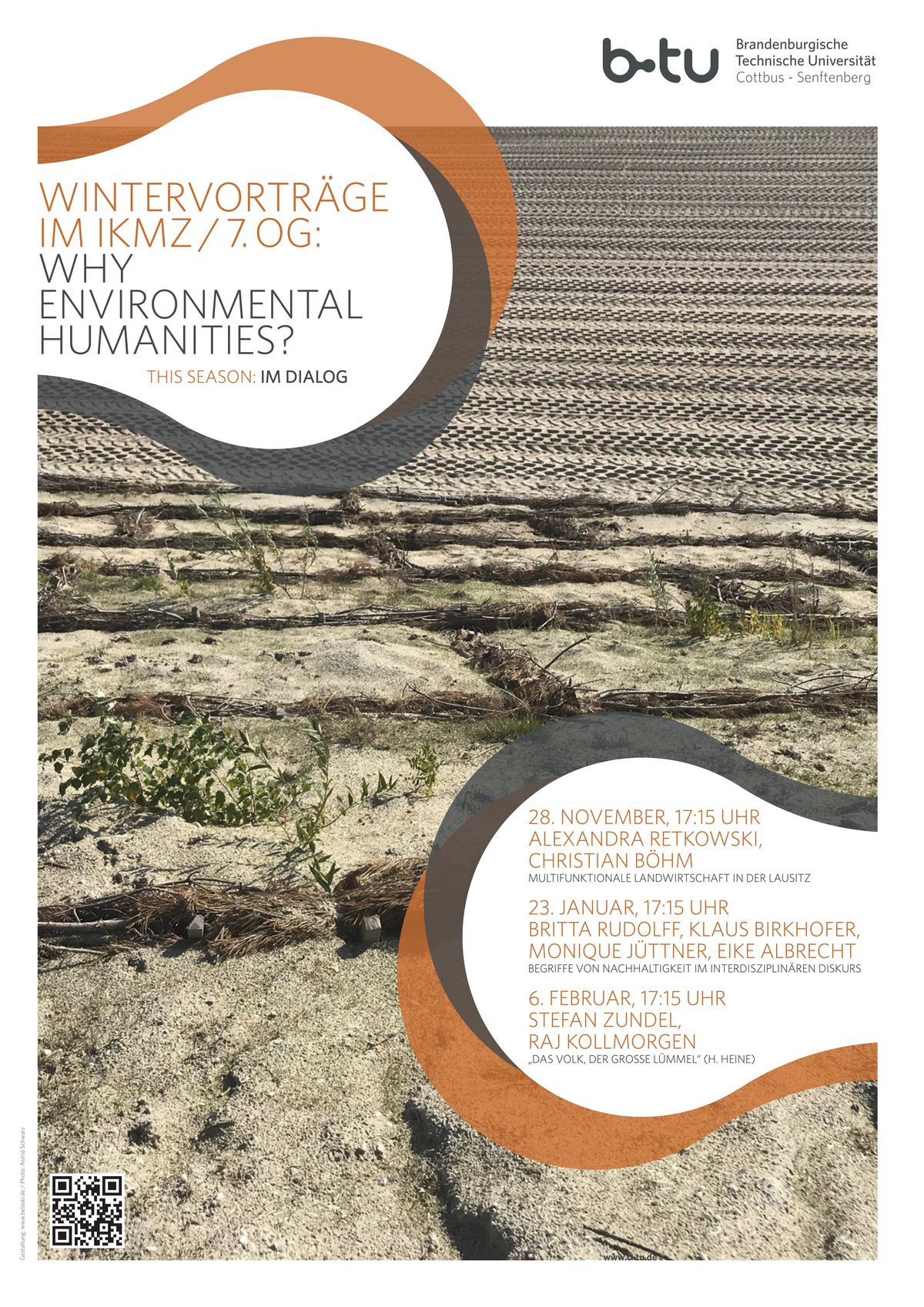Why Environmental Humanities? | Veranstaltungen | Wintersemester 2019/20
Die Environmental-Humanities-Vorträge im Wintersemester 2019/20 folgten dem Motto „die BTU diskutiert“.
Kolleginnen und Kollegen der BTU und Ihre Gäste fokussierten auf Aspekte des Themenfeldes Environmental Humanities und entwickelten dabei jeweils eigene Positionen zum materiellen, ökonomischen und kulturellen Transformationsprozess in der Lausitz.
Das Format der Veranstaltungen ist offen und dialogisch angelegt, als Einstieg wurden Impulsreferate gegeben.
Alexandra Retkowski und Christian Böhm28. November | Multifunktionale Landwirtschaft in der Lausitz
Britta Rudolff, Klaus Birkhofer, Monique Jüttner und Eike Albrecht23. Januar | Begriffe von Nachhaltigkeit im interdisziplinären Diskurs
Stefan Zundel und Raj Kollmorgen6. Februar | „Das Volk, der große Lümmel“ (H. Heine)
Wussten Sie schon?
Das Rachel Carson Center in München hat eine Initiative gestartet um national und international die Potentiale von Studiengängen auszuloten, die sich den Environmental Humanities widmen oder dies vorhaben. Die BTU wurde bei dem Workshop „Teaching Environmental Humanities“ vertreten durch Prof. Astrid Schwarz.
Die Veranstaltung fand am 22.-23. November 2019 in München statt.
Environmental Humanities has grown rapidly as a field in the last decade. Its potential to contribute solutions to the global environmental crisis excites not only scholars and practitioners but also young people and students, from those already in university to those protesting for the future every Friday across the world. But this rising interest presents a new challenge: how should we teach environmental humanities? What pedagogies and practices will best prepare this engaged generation of global environmental citizens?
Having recently won support from the Volkswagen Stiftung’s Hochschule der Zukunft initiative to develop new higher education programs in environmental humanities, the Rachel Carson Center is hosting the first of its kind workshop in Teaching Environmental Humanities this November. On 22 and 23 November, more than twenty practitioners and scholars coming from four continents will gather at the RCC. Over the course of both days, they will discuss best practices and shared challenges when teaching issues of environment and society at the graduate and undergraduate levels. This closed event marks the start of the RCC’s development of a new cutting-edge teaching curriculum in the near future.

